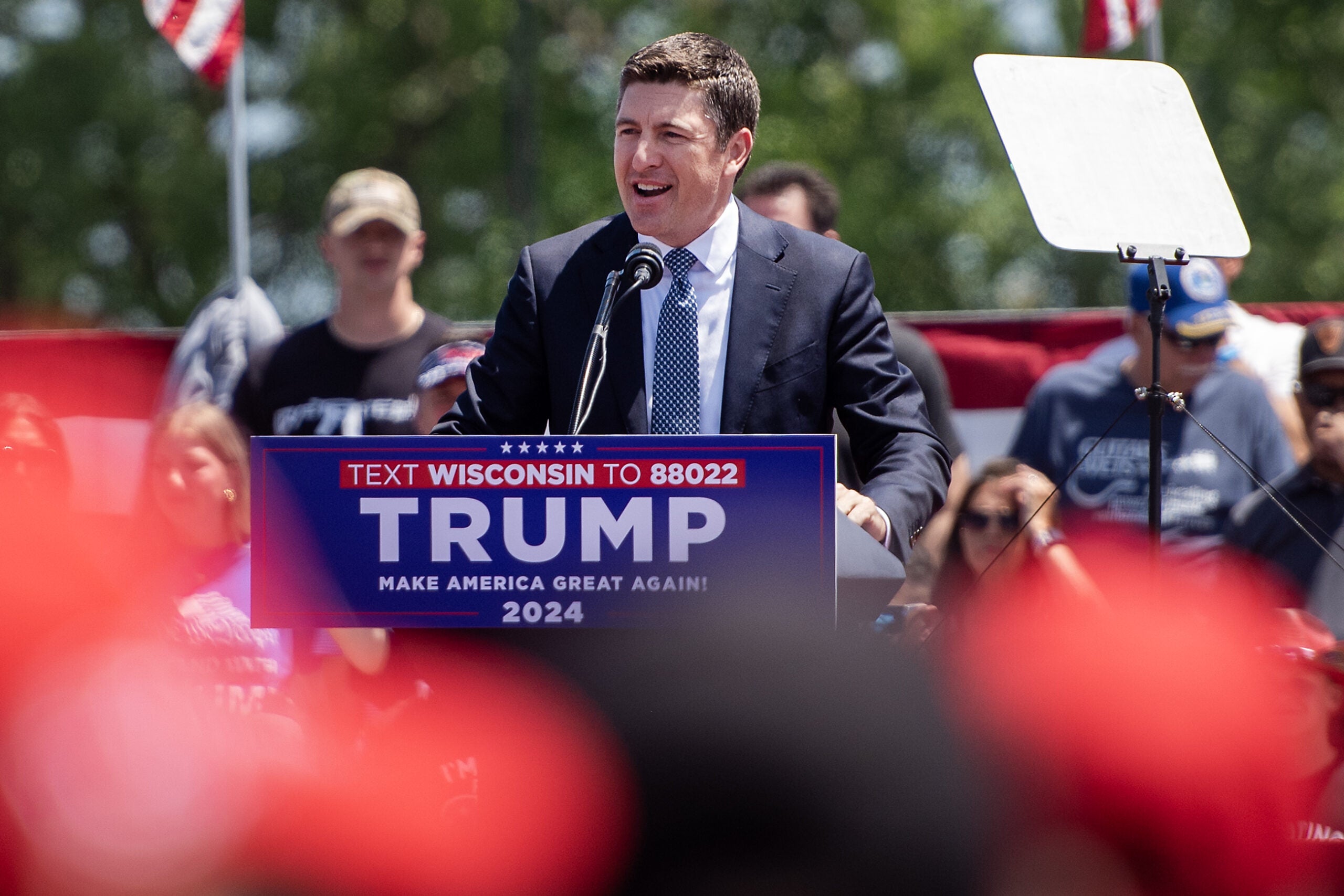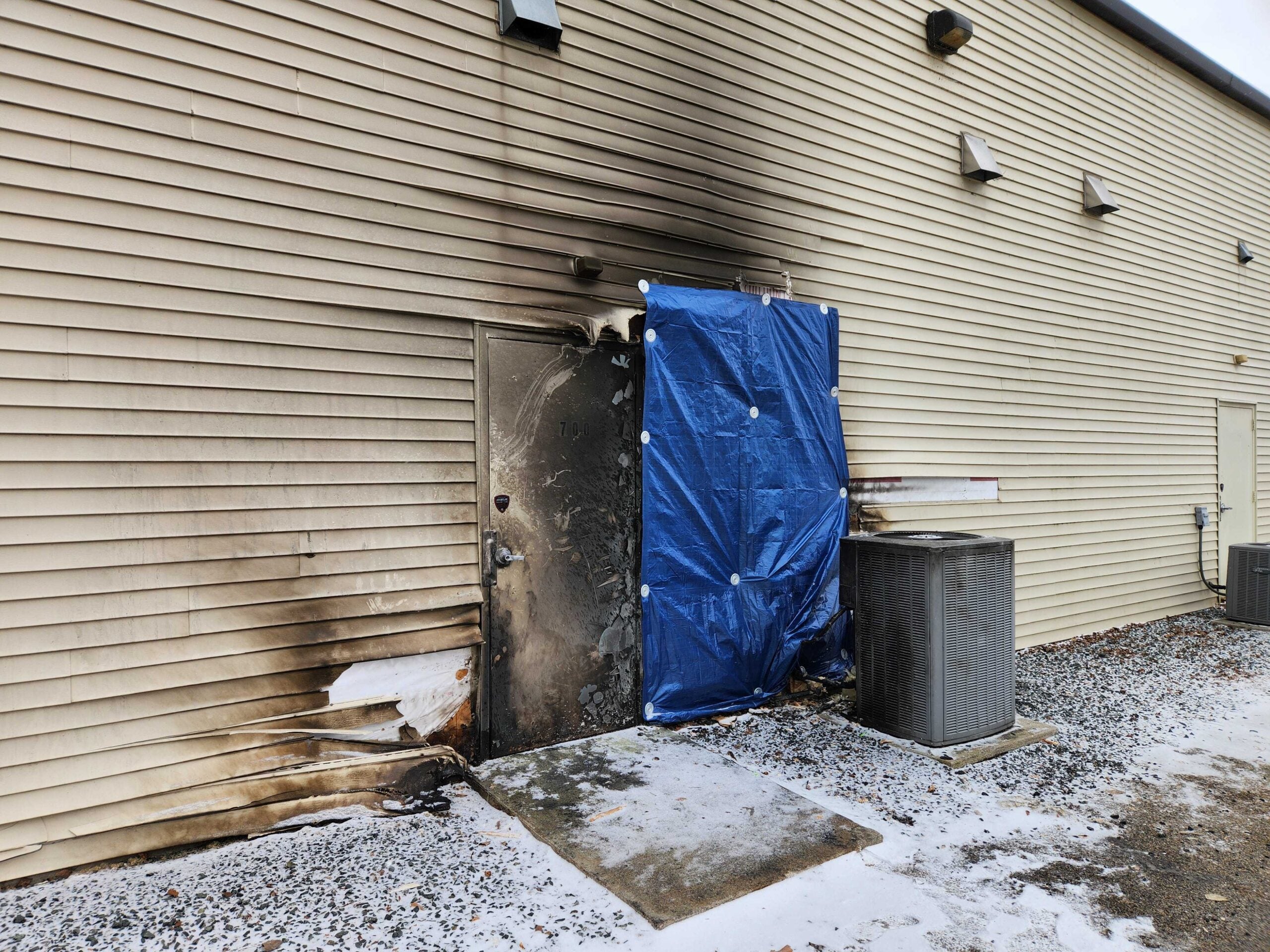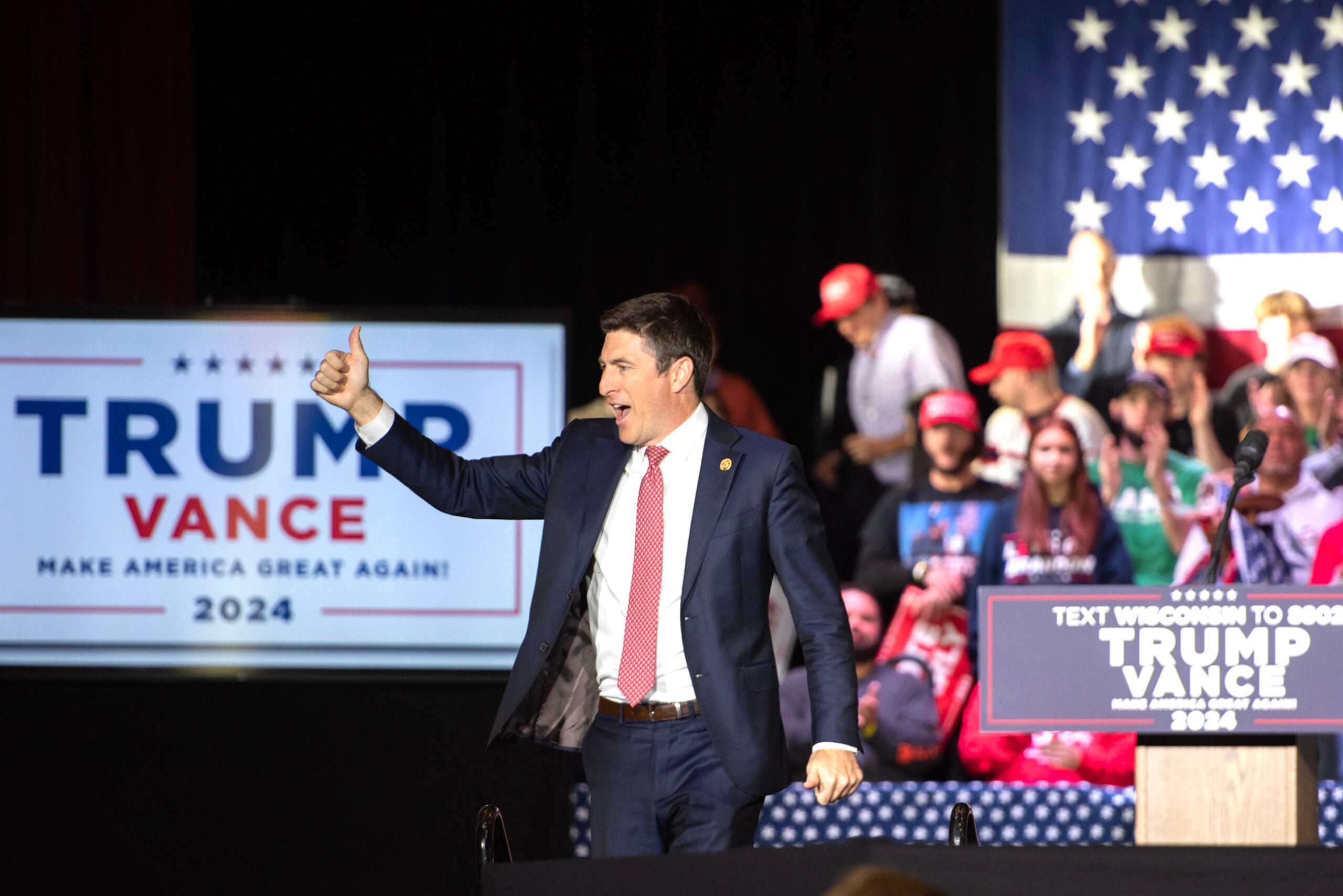Republican U.S. Rep. Bryan Steil on Wednesday said President Donald Trump’s moves on immigration and federal spending are steps in the right direction, but Steil sees a bigger role for Congress in making those changes last.
President Trump signed dozens of executive orders targeting the likes of refugee admissions and diversity programs, and his administration tried to put in place a freeze on federal grants and loans that is facing a legal challenge.
Steil, whose district includes Janesville, Racine, and Kenosha, supported that bill. He was also appointed to lead the Subcommittee on Digital Assets, Financial Technology and Artificial Intelligence.
Stay informed on the latest news
Sign up for WPR’s email newsletter.
Steil joined “Wisconsin Today” to discuss his committee appointment and the latest issues facing Congress.
The following was edited for clarity and brevity.
Kate Archer Kent: There has been a flurry of activity from the Trump administration. Which orders are you most supportive of and will make the biggest impact on the lives of Wisconsinites and this country?
Rep. Bryan Steil: Coming out on day one, President Trump made some very strong and positive executive orders in particular as it relates to border security. These were executive actions that we were calling on President Biden to take but he refused.
So, President Trump came in [and] reinstated Stay in Mexico, ending abuse of the parole system, restarting border wall construction and making sure that we secure the U.S.-Mexico border. [That] has a real impact in Wisconsin in particular, as it relates to the flow of illicit drugs like fentanyl that have been coming across the border, both through legal ports of entry, but also significantly through illegal entry, as well as the scourge of human trafficking that we have seen play out as a result of the broken border policies we saw for the last four years.
KAK: Should immigration at the southern border be stopped altogether?
BS: We should stop illegal immigration altogether. It’s going to take not only the work of executive action by the president, but also the action and work of Congress.
Last Congress, I was proud to support a border bill called H.R. 2. It was a comprehensive bill to secure the U.S.-Mexico border, to make sure that we were supporting the men and women of border patrol, investing in technology, and also forcing the executive to take many of the actions that President Trump voluntarily just took.
Putting that into law prevents the future president from unwinding. And so all the executive actions are a good step forward. I think in the end, legislative action is going to be needed to make sure that we secure the border completely.
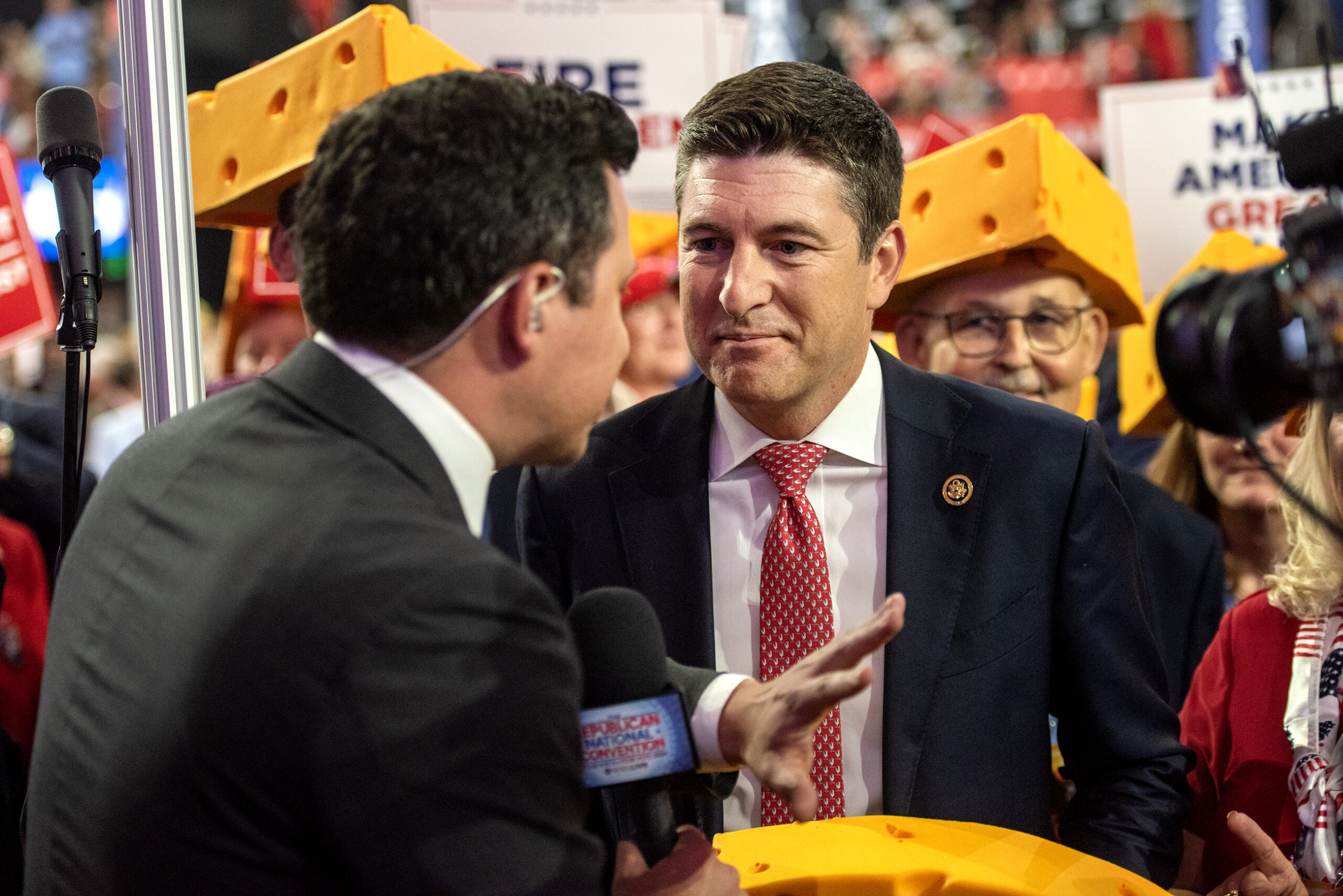
KAK: On the flip side of that, could this affect Wisconsin communities? You look at an industry like dairy, which is very much a labor force of immigrant labor. Will this have an effect on particular industries?
BS: I think it’s important to clarify the difference between immigrant labor that is legal labor and illegal immigrant labor.
I think that’s very important in particular as we think about the labor markets in Wisconsin. It’s important to make sure that we have men and women who are taking the jobs that are available in our state.
As we think about the dairy industry, immigrant labor plays a critical role. H-1B visas, other agricultural visas, sometimes they fit the agriculture industry during the fall harvest season, sometimes they don’t fit as well, in particular, as we think about the dairy industry.
But I’m of the belief that allowing some dairies to use illegal labor and undercut the labor market is not beneficial. I’m of the belief that if we require everyone to abide by the rules, those dairy farms that are currently operating legally will no longer be undercut by dairy farms that are operating illegally.
KAK: The Trump Administration says its freeze on federal grants and loans remains in place. The Wisconsin state government receives $28 billion a year in federal assistance, the bulk of that going to the Department of Health Services for Medicaid programs, according to the state Legislature’s nonpartisan Fiscal Bureau. Do you support a pause in federal funding?
BS: What the administration is doing is going through with a fine-tooth comb on all of these programs. Again, this is trillions of dollars of federal government spending that is being spent in any given year, and so all of us working together play a real role here, right?
I think all of us Americans are united on removing waste, fraud and abuse, on making sure the tax dollars are going to their highest and best purpose.
Broadly speaking, I think we’re best when our elected leaders in the House and the Senate are dictating those spending decisions. But over the years, and this goes back decades and decades, Congress has really given significant authority to the president over the authority of the House and the Senate. And this cuts across all administrations.
We would be best served to re-empower Congress in that appropriations process. … That being said that’s not where we are today, and so I think it’s appropriate that we’re reviewing a lot of the spending that went through at the end of the Biden administration to make sure that it’s actually a good and appropriate use of taxpayer dollars.
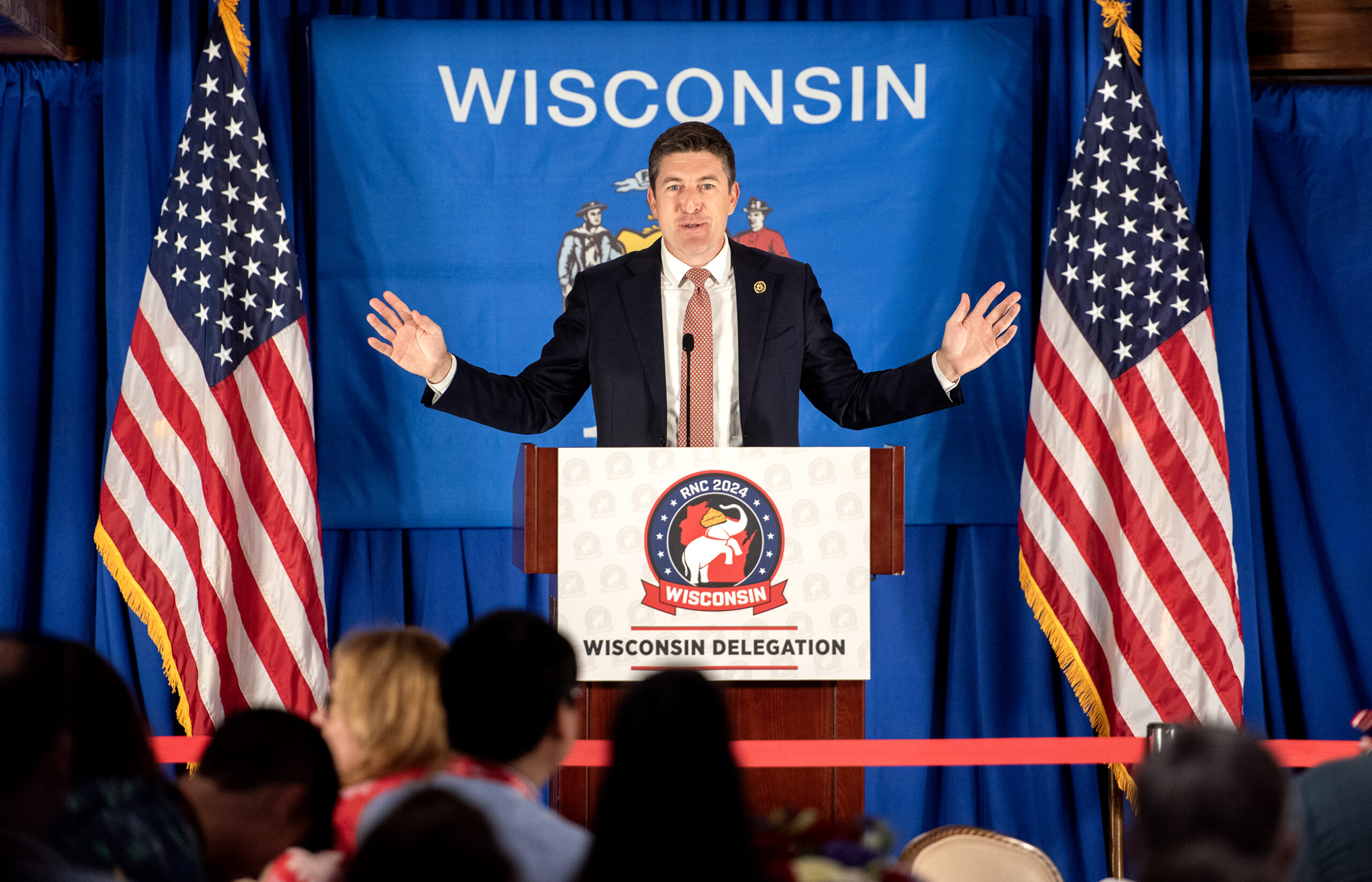
KAK: You’re leading the Subcommittee on Digital Assets, Financial Technology and Artificial Intelligence, What are your priorities as leader of that subcommittee?
BS: I look at two key priorities in the digital asset space. One is working to ensure American’s financial investments are safe and secure.
The other is to make sure that we’re encouraging innovation and development here in the United States and not allowing us to be out-competed by other countries like China.
If we put forward a framework for digital assets investment, really the plumbing of our financial system, here in the United States we have an opportunity to encourage that innovation and development here in America, rather than allowing foreign countries to take the lead in this space, which in many ways they are right now.
KAK: President Trump and First Lady Melania Trump launched crypto meme coins prior to Inauguration Day, and opponents say the president’s coin has the potential to raise significant funds for his business empire. Is there a way to regulate crypto for this president and potential future presidents?
BS: [I’ve been working on a bill] that will hopefully have an opportunity to move forward this year, actually defining the market structure in crypto and making sure that we’re working to protect and secure American investments.
There would be a regulatory framework for all sorts of different digital assets, including meme coins. I think it’s reasonable and appropriate for us to put forward a framework for the United States of America, because at the end of the day, what it’ll do is it’ll protect investors but also encourage innovation and development here in the United States.
KAK: Turning to TikTok, you support the law essentially banning TikTok unless its Chinese-owned parent company sells. The U.S. Supreme Court upheld the ban this month. In recent days, you told WTMJ that the U.S. needs to force the sale of TikTok due to data collection concerns from China. President Trump ignoring that law giving TikTok owners an extension. What do you make of that?
BS: At the end of the day, what we’re not upset about is the app itself. The app in theory can be used and could be fine. It’s not fine today because the Communist Chinese Party through their involvement in ByteDance, which is the company that owns TikTok, has backdoor access to Americans’ digital technology. And so the law that passed Congress did not ban TikTok, per se. What it did is it said we need to alter the corporate structure to prevent the Communist Party of China from having a back door into Americans’ digital fingerprints. At the end of the day, I think it is appropriate that we force that sale or divestiture and hopefully we’ll be able to reach that in the not-too-distant future.
Wisconsin Public Radio, © Copyright 2025, Board of Regents of the University of Wisconsin System and Wisconsin Educational Communications Board.
